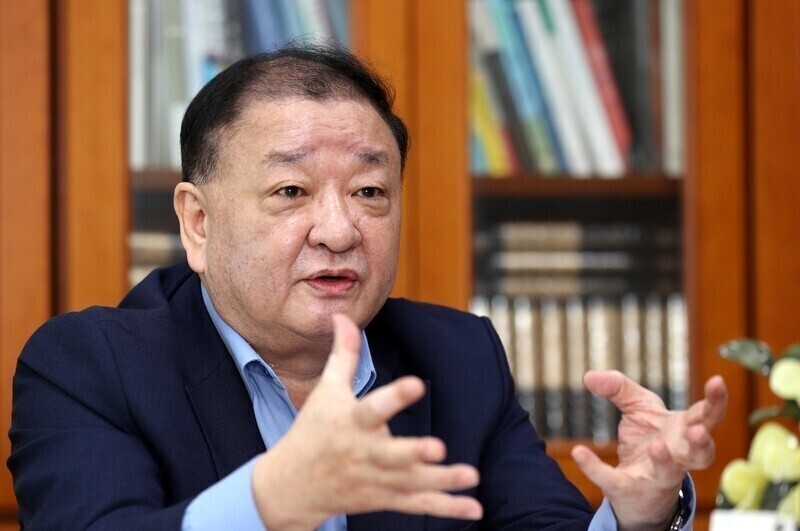S. Korea’s new ambassador to Japan advocates finding “political solution” to historical conflicts
Kang Chang-il says Seoul-Tokyo relations are the worst they’ve ever been

Kang Chang-il, South Korea’s newly appointed ambassador to Japan. (Hankyoreh archives)
Kang Chang-il, South Korea’s new ambassador to Japan, emphasized that the two countries “need to seek a political solution” to historical conflicts, including the conscription of Koreans for forced labor during the Japanese colonial period, if they are to resolve their relations, which have reached “the lowest point since the establishment of diplomatic relations.”
While Korean politicians have openly spoken of the need for a “political solution,” this is the first time the South Korean government has officially expressed its intention to politically resolve the issue of compensation for forced labor victims.
Kang also said the South Korean government “must not repeat past errors” as it reckons with a South Korean court that ruled on Jan. 18 that the Japanese government must pay damages to the former comfort women who sued it.
“This is the lowest situation since [South Korea and Japan’s] establishment of diplomatic relations in 1965. [Unlike the past,] the battlelines have expanded from historical conflict to the areas of the economy and security,” Kang said during a video press conference with reporters on Jan. 17, as he prepares to assume his position on Jan. 22.
“We’ve learned the lesson that it doesn’t help either South Korea or Japan when historical issues get entangled with economic ones,” he said.
In terms of a solution to the forced labor issue, Kang said, “There are a lot of ways for [South Korea and Japan] to resolve that while honoring each other’s principles and justifications.”
“There are 12 ideas that experts have discussed,” he noted.
Kang also said that when President Moon Jae-in was awarding him his credentials on Jan. 14, he told the president that he would “be willing to play any role necessary for the successful holding of the Tokyo Olympics” and wanted to “meet and speak frankly with Prime Minister Yoshihide Suga.”
Suga refused meeting with parting S. Korean ambassador
But while South Korea has emphasized a “political solution,” the mood in Japan has been frosty. Suga reportedly declined to have a farewell meeting with South Korean Ambassador to Japan Nam Kwan-pyo before Nam’s return to South Korea. This stood in contrast with Moon, who met on Jan. 14 with departing Japanese Ambassador to South Korea Koji Tomita and talked about “swiftly restoring South Korea-Japan relations” ahead of Tomita’s new assignment as Japanese Ambassador to the US. Responding to comments that Suga’s failure to meet with Nam was a breach of diplomatic protocol, Kang said, “I sort of feel that way too.”
“I’m not sure why he couldn’t say goodbye or meet with [Nam],” he added.
By Kim Ji-eun and Kim So-youn, staff reporters
Please direct comments or questions to [english@hani.co.kr]